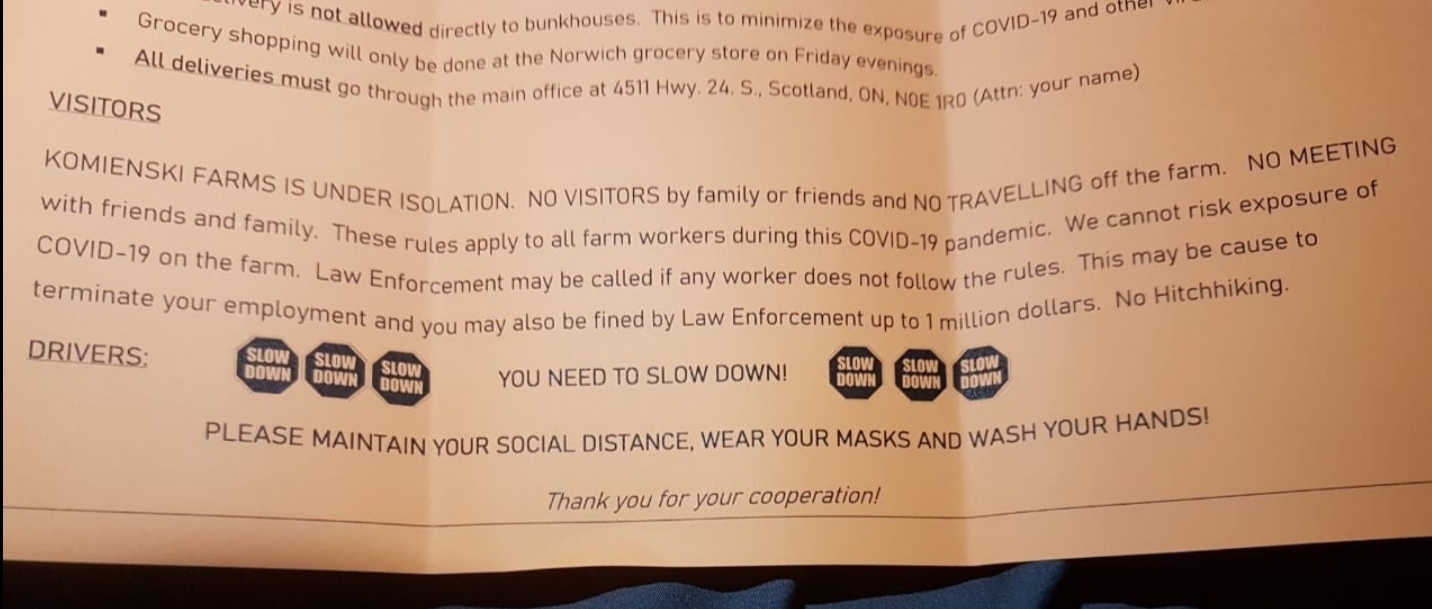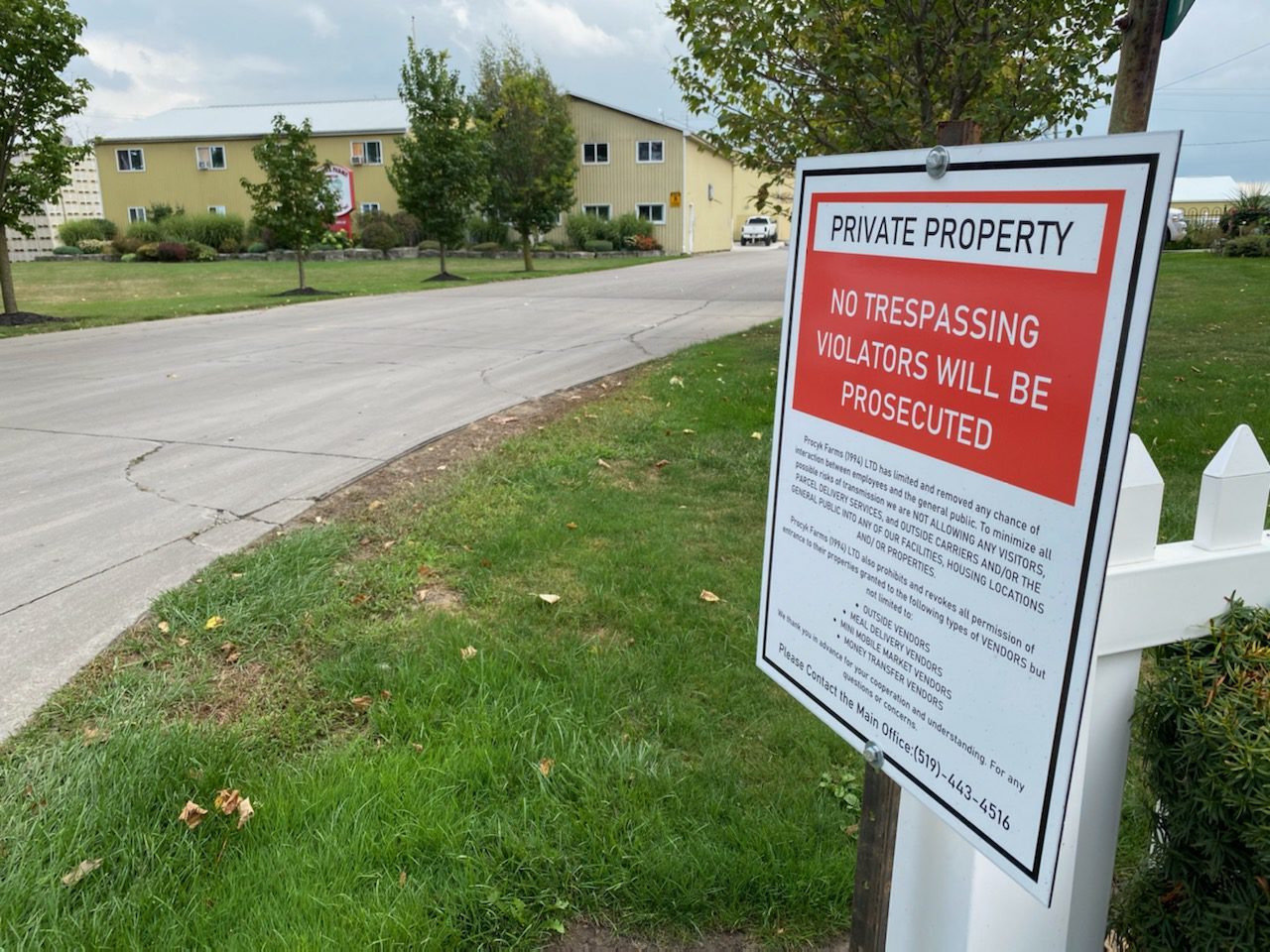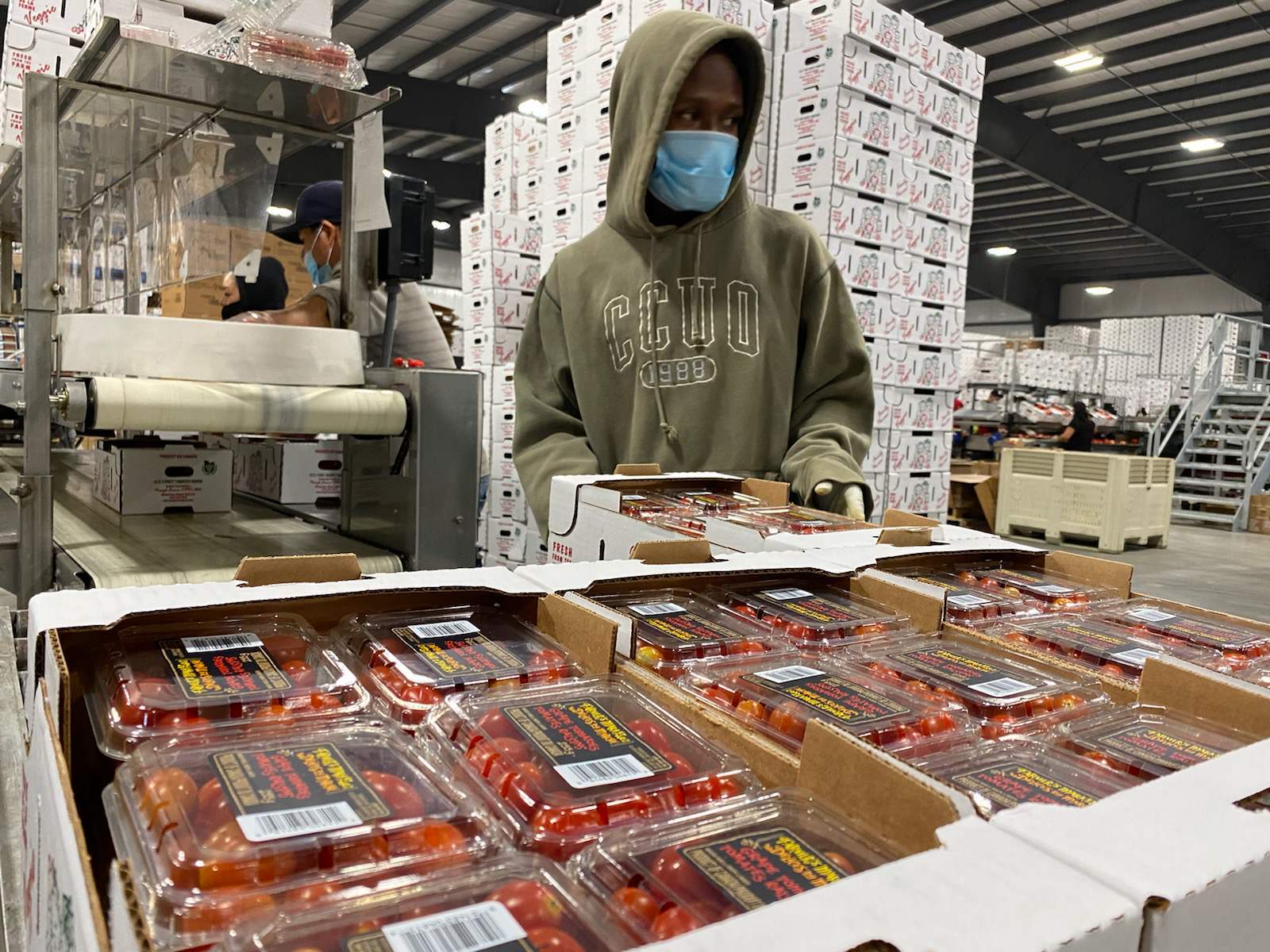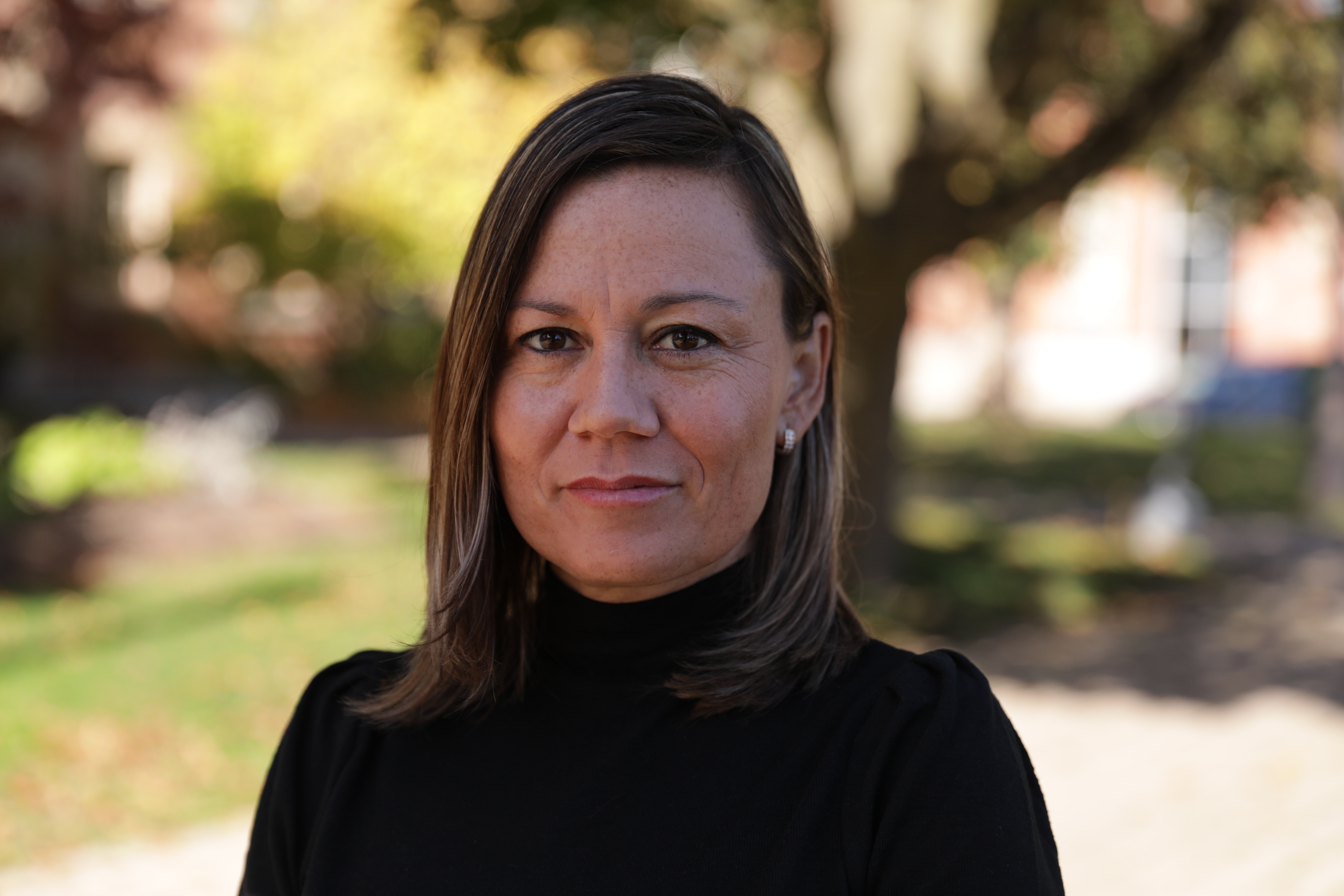IV.
Although federal law prohibits employers from holding migrant workers on the farm, the only time Ben could leave the Komienski farm after arriving in April was every other week on an escorted grocery store trip.
He provided a photo to The Fifth Estate of a notice he said the workers received from their employer.

The notice said: "No travelling off the farm," in a bid to minimize the risk of exposure to the virus. "Law enforcement may be called if any worker does not follow the rules."
The warning to workers says if they do leave the farm without permission, it "may be cause to terminate your employment," and "you may also be fined by law enforcement up to $1 million."
Under the federal Quarantine Act, there is potential for a fine of up to $1 million for breaking isolation. However, this only applies to the two-week period after a person arrives from outside Canada, which can be extended if they develop symptoms.
On Aug. 29, farmers received an email signed by the federal director general of the temporary foreign worker (TFW) program. "The TFW program does not provide employers with the right to limit the free movement of workers, such as movement off the property where TFWs live and/or work," said the email obtained by The Fifth Estate.
When The Fifth Estate spoke with Ben in October, several weeks after the federal government sent the email to farmers, nothing had changed on his farm.
Komienski Ltd. declined an interview with The Fifth Estate.
Ben is one of a chorus of migrant farm workers across Canada complaining they were denied freedom of movement. These complaints ramped up in July and August, as the first wave of COVID-19 receded and the rest of the country was allowed back into bars and restaurants or to work out at the gym.

Procyk Farms Ltd., one of the biggest vegetable growers in Norfolk County, and a supplier to Loblaw Inc., also took measures to lock down their farm. They employ at least 550 workers, mostly from Mexico.
Back in March and April, workers were going into town, but the Procyks put an end to workers' weekly grocery trips and set up their own online store, allowing the staff to order a broad range of food items that they could pick up — and pay for — right on the farm.
"In the beginning … they loved the idea. They couldn't believe what we were doing," said company president Paul Procyk. "They just enjoyed the whole idea that they didn't have to … rush to town and wait in line and … go against the local people to get their groceries and do their stuff."
For Procyk’s family, who grow everything from corn to tomatoes, peppers and zucchini, the financial loss of having to close from an outbreak would be tremendous.

"We do 75 million pounds of produce here a year. In a matter of, let's call it 14 weeks. Take two of them away, that pretty much tells you what it is. Right? It's huge…. At the end of the day, we're feeding people. What's wrong with that? Are you really worried about ... how it gets done?"
But Procyk acknowledged there’s no way everybody was happy with the decision to urge workers not to leave the farm.
He said farmers struggled this year because of different directions from three levels of government: the county’s health unit, the province and the federal government.
"There's just too many groups that think they are telling us how to do what's best for the workers."
Arnal said migrant workers felt the brunt of the COVID-19 fears in the community this season.
"There's been racial profiling and confusion around isolation and at the end of the day the community has lashed out at the farm workers and treated them as though they are a risk when in fact they are at risk just like the rest of us," she said.
Chopp, the Norfolk County mayor, said that at one point "we were receiving emails that how dare we allow the migrants to wander around town, to go to the grocery store."
Workers and their employers felt targeted by the mixed messages.
"You're the bad guy if you send them to town, you're the bad guy if you keep them [on the farm]," Danny Procyk said.
About a dozen other farms in Norfolk County were accused of restricting the movement of their workers this season, including Komienski Ltd. The complaints were forwarded by worker advocates to the local health authority and passed on to officials at the Ontario Ministry of Labour and Employment and Social Development Canada.
Chopp said once workers have gone through the mandatory two-week quarantine after arriving in Canada, they should be treated like any other Canadian.

"We've heard of the complaints, we've called the Ministry of Labour, we've gotten them involved in a couple of farms where we've heard of farmers not allowing their workers to leave," Chopp said.
It is not clear what, if anything, was done in response to the complaints from Norfolk County. In an emailed statement to The Fifth Estate, the Ontario Labour Ministry said that at the end of July, it received a list of farms alleged to be locking down workers in Norfolk County but said such allegations “are not in the jurisdiction” of the ministry.
For its part, the federal employment department did not specify whether it took actions at any farms beyond sending the email to farmers in late August regarding the regulations under the temporary worker program that prohibit restrictions on employees’ movements.
Chopp said the majority of Norfolk's farms did not restrict workers' movements but was surprised when told about Komienski Ltd.
Locking down workers, she said, is "against our own human rights laws" in Canada. "This issue with migrant workers, this I would say is the civil rights issue here of our time. Without a doubt."
Brett Schuyler is one of those who didn't restrict workers' movements. He employs about 250 migrant workers on his rolling apple orchards near the town of Simcoe.
"I've got a lot of respect for the workers on this farm. I haven't been out to these farms where this is happening," Schuyler said. "When your farm is run by this group of migrant farm workers, they can't be pissed off with you, they can't be thinking ill of you. It's a team, it's a family."
"bitter" - Google News
November 29, 2020 at 04:00PM
https://ift.tt/2KHaJ3k
Bitter harvest - CBC.ca
"bitter" - Google News
https://ift.tt/3bZFysT
https://ift.tt/2KSpWvj
Bagikan Berita Ini














0 Response to "Bitter harvest - CBC.ca"
Post a Comment